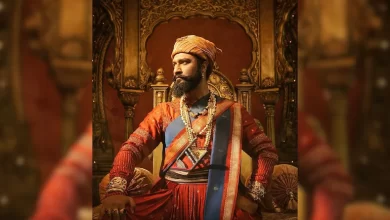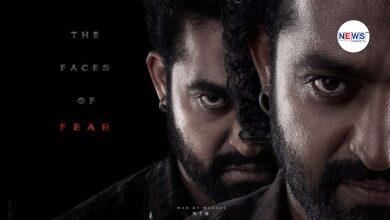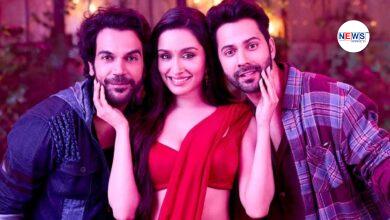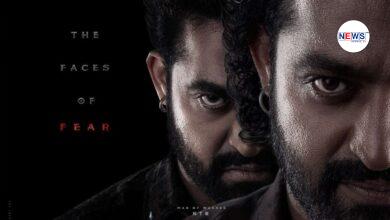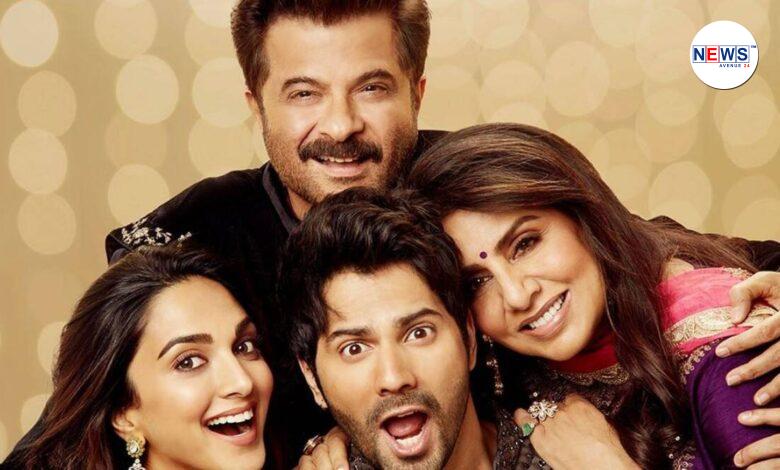
Jugjugg Jeeyo: Neetu Kapoor captures the raw anguish of a loveless marriage in one scene, everything else is just noise
Jugjugg Jeeyo had the right themes, but it derailed by delving into trite, sexist comedy and utilising age-old Bollywood tropes for a story that was intended to be progressive.
In Jugjugg Jeeyo, Neetu Kapoor silences a flustered Varun Dhawan, who plays her son, after he snaps at Kiara Advani, her daughter-in-law, with just a few words, “Khabardar Naina se aise baat ki mere saamne (Don’t you dare talk to Naina like that in front of me).”
Keeping in tone with her character, Neetu doesn’t yell or scream throughout the film, in comparison to the rest of the family who resort to typical Bollywood theatrics to emphasise anguish and fury, which includes creating teary scenes in public. No, Neetu’s power comes from her controlled tones as she deals with a cheating husband and her son, who is also on the verge of divorce. Her relationship arc puts the focus on the reality of many married couples in India — being married but essentially living separate lives. Perhaps the other characters should have been allowed to follow suit in terms of performance (along with drastic dialogue changes of course), and then Jugjugg Jeeyo could have been far more impactful. At the moment, the film is the most Bollywood-ised interpretation of divorce, with a big fat Punjabi wedding in the backdrop, and a series of jokes that feel like husband-wife WhatsApp forwards.
Jugjugg Jeeyo revolves around two couples, Kuku-Naina and Kuku’s parents Bhim and Geeta, played by Anil Kapoor and Neetu Kapoor. There’s bitterness between Kuku and Naina as she is far more successful than him in Canada, and he was compelled to leave Patiala for her. Resentments have been brewing and neither could communicate it to each other and finally decide on a divorce. As Kuku tries to tell Bhim about his impending divorce, he learns that his father also wants to separate from his mother and is having an affair with a woman named Meera. Rather than tapping first a son’s confusion and anguish at his father’s infidelity, we’re forced to hear a lot of sexist banter and taken through some hare-brained zany schemes to get his father to fall in love with his mother again for the sake of comedy. This includes trying to get random young girls to pull the moves on him because he feels that his father is just lusting (isn’t this a bigger problem?) after Meera. Finally, Kuku does struggle to show the dilemmas that such a son would face, but that comes too late and is doused with much hysterics, tears and excessive theatrics that nothing feels real by the end of the film.
There is much deception and betrayal in Jugjugg Jeeyo, but it’s all played for laughs for the most part. At the end, Anil Kapoor’s character is such a blatantly selfish man-child that you wonder why Geeta hadn’t left him before.
Kuku and Naina’s reasons for divorce aren’t so clear till halfway through the film as every second scene is played for laughs. So, when they engage in a heated fight, it makes one sit up. Finally, Naina explains what has been hurting her—it’s the lack of any sort of appreciation from Kuku for her success. It’s an emotional scene that Varun and Kiara deserve credit for, but you almost wish that there had been a better build-up to this fight. Another problem with Kuku and Naina’s story is that they’re looked upon as ‘kids’ for wanting divorce quickly, dismissed as a ‘modern relationship’ rather than actually delving into the swimming sea of hurt that’s between the two of them. It’s an archaic way of looking at current relationships and dilutes the actual dynamics between a couple.
It’s Bollywood, so everything gets tearfully resolved in court, in front of everyone. Bhim cheerfully tells Kuku at the end, “Teri ma ko pata lunga.”
The “other woman”
The ‘other woman’ in Bollywood is usually a caricature, mostly presented as a facetious woman, who is either using the man for his money, or loves him so much that she goes completely insane. Tisca Chopra in Jugjugg Jeeyo was intended for comic purposes clearly, judging by her practised laughs and it’s almost as if she is to be judged for wanting to be independent from her partner. Despite Bhim’s claims that the love between the two of them is real, it falls flat later. There is no seriousness here either; it feels as if this story was written to induce some laughs from the audience. This makes Bhim’s character look even more ridiculous and absurd.
Tisca Chopra’s Meera plays an adulteress straight out of an old-fashioned Hindi serial, she’s clad in sleeveless blouses, overtly giggly — yet she’s independent and isn’t going to wait on any man, something that our Bhim is used to. After Geeta palms her husband off to Meera, detailing everything that she has done for him in the past 35 years, Meera has cold feet as she realises that she doesn’t want to be waiting on someone for the rest of her life. Stating her independence, she kicks him out and he returns tail between his legs to Geeta, pretending that he is in love with her again and that he had turned down Meera.
That one Neetu Kapoor scene
Neetu Kapoor, with her quiet dignity and grace as a heartbroken woman, is the star of this mess. While she belongs to the old-school of thought who believes that divorce isn’t a solution, she is thrown when she learns of Bhim’s deeds. Nevertheless, at first, she decides to step aside. After telling Meera about her husband’s daily needs, she has a conversation with Naina. It’s a raw and painfully real monologue, where Geeta explains that there wasn’t any love in her arranged marriage. In a gut-wrenching manner, Neetu Kapoor brings out the problems that have ailed so many marriages from previous generations: Staying together for society. She explains that she doesn’t even know if there was love. They just took care of each other, and as she says, that wasn’t love. Life carried on and they brought up their children. This is the essence of what Juggjugg Jeeyo was trying to portray—being trapped in a loveless marriage, with no way out. Neetu doesn’t sob in this scene or has a breakdown, the pain of lost years is reflected in silent tears. This is one of the very few impactful scenes of the film, and it’s a pity that there weren’t more like this. She exudes a similar deadly calm after realising why her husband came back to her—but this is diluted by Kuku’s constant dramatics.
Neetu Kapoor’s Geeta was relatable and powerful and she doesn’t need her husband’s validation to know that she is doing the right thing by divorcing him. It would have been best had they just parted ways, without a chance for reunion.
Jugjugg Jeeyo had the right themes, but it derailed by delving into trite, sexist comedy and utilising age-old Bollywood tropes for a story that was intended to be progressive. When will Bollywood learn?
News Source:- The Indian EXPRESS


